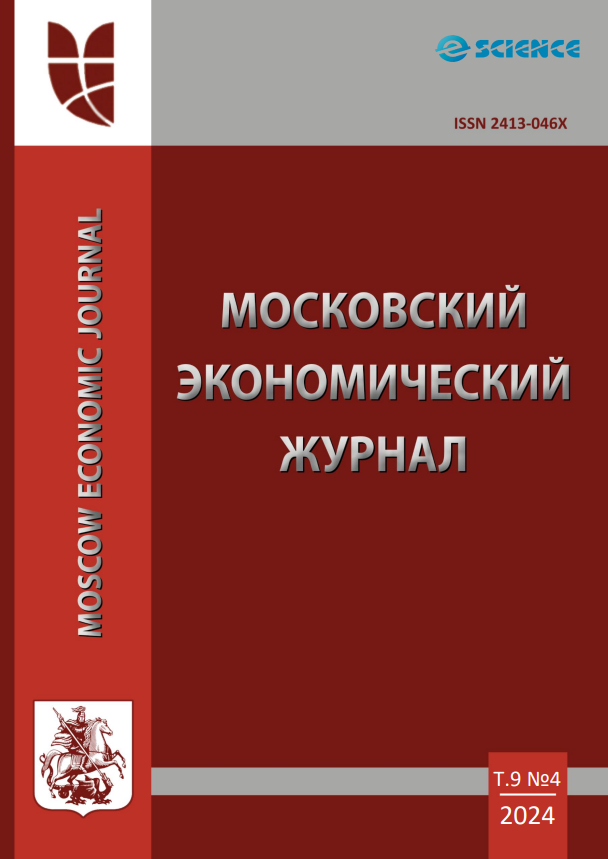Northeastern Agricultural University (International Institute, senior teacher)
UDC 33
Entrepreneurial Orientation (EO) is a key theme in the field of entrepreneurial research, having a profound impact on the development and success of businesses. This paper utilizes a textual analysis approach to comprehensively review the literature on EO, examining the concept from three aspects: the conceptualization of EO, the construction of measurement scales, and empirical research findings. We find that there is debate within the academic community regarding the definition and dimensional structure of EO, the construction and choice of measurement scales, and the mechanisms and moderating factors linking EO to business performance, with no comprehensive consensus achieved. This lack of consensus provides a rich field of options for future theoretical and empirical research on EO. Future studies should focus on achieving theoretical consistency and establishing a dominant academic discourse, while also recommending the integration of alternative measurement tools and improved analytical methods to expand the scope and depth of empirical research. This will enrich the development of EO theory and its application across various economic and social domains.
Entrepreneurial Orientation, textual analysis, concept, scale, company performance
1. Shirokova, G.V. Predprinimatel'skaya orientaciya: istoki koncepcii i osnovnye podhody k issledovaniyu. Rossiyskiy zhurnal menedzhmenta. 2012. Tom 10. № 1. S. 55-72.
2. Kraus, S.; Filser, M.; Stöckmann, C.; Covin, J.G. The status quo of research on entrepreneurial orientation: Conversational landmarks and theoretical scaffolding // Journal of Business Research. 2021. Vol. 128. P.: 564-577.
3. Miller, D. The correlates of entrepreneurship in three types of firms // Management Science. 1983. Vol. 29(7). P.: 770-791.
4. Wales, W.J.; Covin, J.G. The status quo of research on enterpreneurial orientation: Conversational landmarks and theoretical scaffolding // Journal of Business Research. 2021. Vol. 128. P.: 564-577.
5. Lumpkin, G.T.; Dess, G.G. Clarifying the entrepreneurial orientation construct and linking it to performance // Academy of Management Review. 1996. Vol. 21(1). P.: 135-172.
6. Covin, J.G.; Slevin, D.P. The influence of organization structure on the utility of an entrepreneurial top management style // Journal of Management Studies. 1988. Vol. 25(3). P. 217-234.
7. Covin, J.G.; Slevin, D.P. Strategic management of small firms in hostile and benign environments // Strategic Management Journal. 1989. Vol. 10(1). P.: 75-87.
8. Naman, J.L.; Slevin, D.P. Entrepreneurship and the concept of fit: A model and empirical tests // Strategic Management Journal. 1993. Vol. 14(2). P.: 137-153.
9. Covin, J.G.; Slevin, D.P.; Schultz, R.L. Implementing strategic missions: Effective strategic structural and tactical choices // Journal of Management Studies. 1994. Vol. 31(4). P.: 481-505.
10. Wiklund, J. The sustainability of the entrepreneurial orientation-performance relationship // Entrepreneurship Theory and Practice. 1999. Vol. 24(1). P.: 37-48.
11. Covin, J.G.; Wales, W.J. The measurement of entrepreneurial orientation // Entrepreneurship Theory and Practice. 2012. Vol. 36(4). P.: 677-702.
12. Kreiser, P.M.; Marino, L.D.; Weaver, K.M. Assessing the psychometric properties of the entrepreneurial orientation scale: A multi-country analysis // Entrepreneurship Theory and Practice. 2002. Vol. 26(4). P.: 71-94.
13. Zahra, S.A. Predictors and financial outcomes of corporate entrepreneurship: An exploratory study // Journal of Business Venturing. 1991. Vol. 6(4). P.: 259-285.
14. Zahra, S.A.; Covin, J.G. Contextual influences on the corporate entrepreneurship-performance relationship: A longitudinal analysis // Journal of Business Venturing. 1995. Vol. 10(1). P.: 43-58.
15. Zahra, S.A.; Nielsen, A.P.; Bogner, W.C. Corporate entrepreneurship, knowledge, and competence development // Entrepreneurship Theory and Practice. 1999. Vol. 23(3). P.: 169-189.
16. Fredrickson, J.W. Transferring core manufacturing technologies in high-technology firms // California Management Review. 1996. Vol. 38(4). P.: 50-76.
17. Jambulingam, T.; Kathuria, R.; Doucette, W.R. Entrepreneurial orientation as a basis for classification within a service industry: The case of retail pharmacy industry // Journal of Operations Management. 2005. Vol. 23(1). P.: 23-42.
18. Basso, O.; et al. A critical examination of the relationship between entrepreneurial orientation and environmental sustainability // Small Business Economics. 2009. Vol. 33(4). P.: 303-318.
19. George, B.A. Entrepreneurial orientation: A theoretical and empirical examination of the consequences of differing construct representations // Journal of Management Studies. 2011. Vol. 48(6). P.: 1291-1313.
20. Morris, M.H.; Coombes, S.; Schindehutte, M. Antecedents and outcomes of entrepreneurial orientation: A theoretical extension // Journal of Business Research. 2007. Vol. 60(12). P. 1255-1265.
21. Covin, J.G.; Lumpkin, G.T. Entrepreneurial orientation theory and research: Reflections on a needed construct // Entrepreneurship Theory and Practice. 2011. Vol. 35(5). P.: 855-872.
22. Covin, J.G.; Miles, M.P. Corporate entrepreneurship and the pursuit of competitive advantage // Entrepreneurship Theory and Practice. 1999. Vol. 23(3). P.: 47-63.
23. Ginsberg, A. Measuring changes in entrepreneurial orientation following industry deregulation: The development of a diagnostic instrument // Proceedings of the International Council for Small Business / ed. by B.G. Roberts. Marietta, GA: U.S. Affiliate of the International Council for Small Business, 1985. P.: 50-57.
24. Walter, A.; Auer, M.; Ritter, T. The impact of network capabilities and entrepreneurial orientation on university spin-off performance // Journal of Business Venturing. 2006. Vol. 21(4). P.: 541-567.
25. Chang, S.C.; Lin, R.J.; Chang, F. J., Chen, R.H. Achieving manufacturing flexibility through entrepreneurial orientation // Industrial Management & Data Systems. 2007. Vol. 107(7). P.: 997-1017.
26. Hughes, M.; Morgan, R.E. Deconstructing the relationship between entrepreneurial orientation and business performance at the embryonic stage of firm growth // Industrial Marketing Management. 2007. Vol. 36(5). P.: 651-661.
27. Chadwick, K.; Barnett, T.; Dwyer, S. An empirical analysis of the entrepreneurial orientation scale // The Journal of Applied Management and Entrepreneurship. 2008. Vol. 13(4). P.: 64-85.
28. Hansen, J.D.; Deitz, G.D.; Tokman, M.; Marino, L.D.; Weaver, K.M. Cross-national invariance of the entrepreneurial orientation scale // Journal of Business Venturing. 2009. Vol. 5(3). P.: 1-18.
29. Li, Y.H.; Huang, J.W.; Tsai, M.T. Entrepreneurial orientation and firm performance: The role of knowledge creation process // Industrial Marketing Management. 2009. Vol. 38(4). P.: 440-449.
30. Lee, Y.; Zhuang, Y.; Joo, M.; Bae, T.J. Revisiting Covin and Slevin (1989): Replication and extension of the relationship between entrepreneurial orientation and firm performance // Journal of Business Venturing Insights. 2019. Vol. 12. – Art. no.: e00144.
31. Zhang, H.Y. Reviewing the development of entrepreneurial orientation scale // Research and Development Management. 2011. Vol. 2. P.: 41-47.
32. Edwards, J.R. The fallacy of formative measurement // Organizational Research Methods. 2011. Vol. 14(2). P.: 370-388.
33. Le Breton-Miller, I.; Miller, D. Entrepreneurial orientation: A theoretical and empirical examination of the consequences of differing construct representations // Journal of Management Studies. 2011. Vol. 48(6). P.: 1291-1313.
34. Short, J.C.; Broberg, J.C.; Cogliser, C.C.; Brigham, K.H. Construct validation using computer-aided text analysis (CATA): An illustration using entrepreneurial orientation // Organizational Research Methods. 2009. Vol. 12(2). P.: 320-347.
35. Bhattacharya, A.; Misra, S.; Sardashti, H. Strategic orientation and firm risk // International Journal of Research in Marketing. 2019. Vol. 36(4). P.: 509-527.
36. Dess, G.G.; Lumpkin, G.T. The role of entrepreneurial orientation in stimulating effective corporate entrepreneurship // Academy of Management Executive. 2005. Vol. 19(1). P.: 147-156.
37. Wang, C.L. Entrepreneurial orientation, learning orientation, and firm performance // Entrepreneurship Theory and Practice. 2008. Vol. 32(4). P.: 635-657.
38. Rauch, A.; Wiklund, J.; Lumpkin, G.T.; Frese, M. Entrepreneurial orientation and business performance: An assessment of past research and suggestions for the future // Entrepreneurship Theory and Practice. 2009. Vol. 33(3). P.: 761-787.
39. Wales, W.J.; Gupta, V.K.; Mousa, F.T. Empirical research on entrepreneurial orientation: An assessment and suggestions for future research // International Small Business Journal. 2013. Vol. 31(4). P.: 357-383.
40. Lumpkin, G.T.; Dess, G.G. Linking two dimensions of entrepreneurial orientation to firm performance: The moderating role of environment and industry life cycle //Journal of Business Venturing. 2001. Vol. 16(5). P.: 429-451.
41. Wiklund, J.; Shepherd, D. Entrepreneurial orientation and small business performance: A configurational approach // Journal of Business Venturing. 2005. Vol. 20(1). P.: 71-91.
42. Hu, W.B.; Zhang, Y.L. Transforming new enterprise entrepreneurial orientation into performance of new enterprise capabilities: Theoretical model and empirical research in China // Nankai Management Review. 2011. Vol. 1. P.: 83-95.
43. Shirokova, G.V.; Bogatyreva, K.A. Vzaimosvyaz' predprinimatel'skoy orientacii i rezul'tatov deyatel'nosti firmy: rezul'taty issledovaniya rossiyskih firm malogo i srednego biznesa // Vestnik Sankt-Peterburgskogo universiteta. Ser. Menedzhment. 2014. № 1. S. 3-27.
44. Bogatyreva, K.A.; Shirokova, G.V. Predprinimatel'skaya orientaciya: etapy stanovlenie koncepcii i osnovnye napravleniya issledovaniy // Rossiyskiy zhurnal menedzhmenta. 2015. № 3(1). S. 65-90.
45. Bogatyreva, K.; Beliaeva, T.; Shirokova, G.; Puffer, S.M. Entrepreneurial orientation, SME growth, and the role of the business environment: A study on Russian and Finnish SMEs // Journal of East-West Business. 2017. Vol. 23(3). P.: 189-221.











